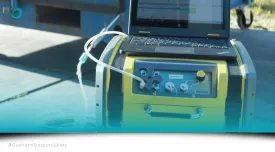Employee Warehouse Health and Safety
Our Customs Support Safety team in the Netherlands can support you with the monitoring of gas concentrations in your warehouse so that your people can work safely with warehouse safety best practices.
Contact us today and one of our warehouse safety specialists will be in touch.


Your Partner for a Safe Working Environment
Customs Support Safety creates a safe working environment by means of qualitative gas measurements, high-quality ventilation in confined spaces and careful risk analysis. We create awareness about possibly dangerous substances which may be present in confined warehouse spaces. We support you in developing a warehouse safety program to establish warehouse safety standards.
Warehouse Health and Safety | Frequently Asked Questions (FAQs)
What impact does fine dust exposure have on warehouse health and safety?
Fine dust exposure can lead to serious and severe health damage which often only manifests itself many years later. Therefore, it is also known as a silent killer. Numerous activities in your warehouse may cause fine dust creation such as welding, stone sawing, woodworking and working with insulation materials such as mineral wool. But also several other production processes and even cleaning activities can result into fine dust.
Why should I monitor gas concentration in my warehouse?
When goods arrive at your facility in shipping containers, you have to be aware that there can be more in that container than just your goods. There could be gases in the container that could be harmful to the people opening and unloading them for various reasons. To protect the safety of your employees and to make sure they can enter the closed space without the risk of high gas concentrations.
What could be the consequence of evaporation in my warehouse?
The main consequence could be that the air in the warehouse or container is toxic due to rising concentrations of gases. This can have severe and negative consequences on the health of your employees. An effective warehouse safety program allows to modorate these factors.
Why is an evaporation process taking place and why is it a warehouse safety risk?
Products are often manufactured in the far east. As they go into containers directly after production, the evaporation process starts in the container. The evaporation process is not only possible in sea containers and trucks but continues during the storage of goods in your warehouse as well. Evaporation of formaldehyde from glued pallets and ethylene oxide evaporation from sterilised medical goods are some examples of gases that often occur in warehouses. Those types of gases are difficult to measure but with our advanced measuring equipment, the FTIR analysers, we can easily monitor them. Afterwards, all results are documented in a comprehensive report which includes professional advice that forms an excellent basis for your risk analysis.










